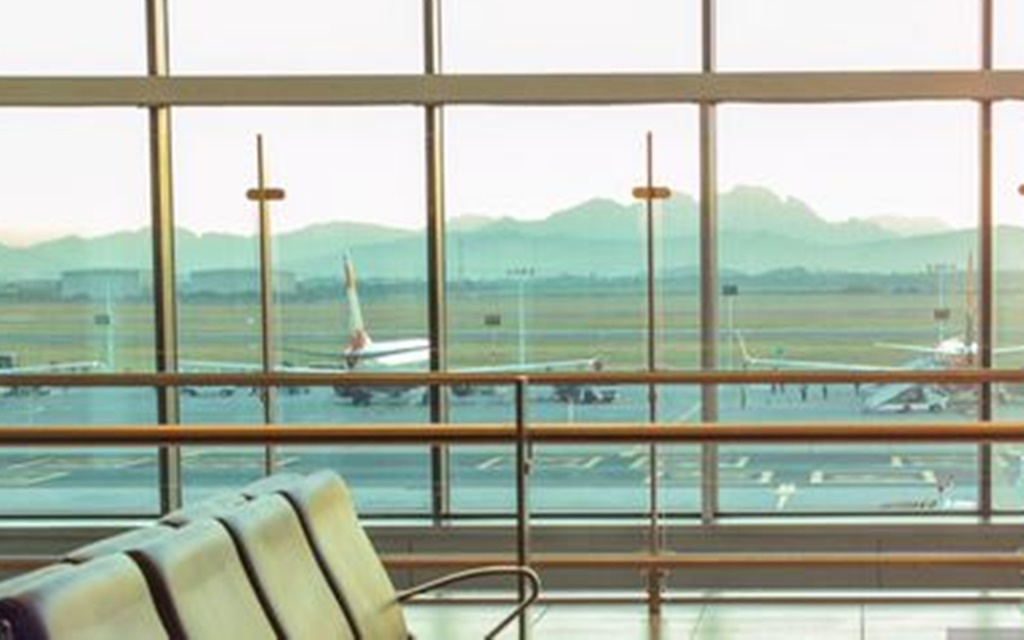
- Governments should balance the need for Covid-19 health measures with the impact these will have on a country's socioeconomic situation, suggests an aviation expert.
- He took part in a national aviation virtual conference hosted by the SA Civil Aviation Authority.
- Forward booking for SA's airline industry appears flat for the next few months, conference participants heard.
When dealing with the coronavirus pandemic, one needs to accept that there is no such thing as risk-free environments. Therefore, one must look at creating a balance between health considerations with the socioeconomic impact of measures taken.
This is the view shared by Dr Alex Stancu, head for Southern and Eastern Africa at the International Air Transport Association (IATA), during a national aviation conference hosted by the South African Civil Aviation Authority (SACAA) on Thursday.
"Waiting for vaccine rollout before reopening borders is not an option. Travel restrictions should be relaxed once vulnerable groups [have been] vaccinated. Aviation workers should be prioritised for access to vaccines and governments and industry need to work together on a blueprint for implementation," suggested Stancu.
"IATA's key messages to the South African government is that it is committed to partnering to combat Covid-19. Removing travel restrictions is key to economic recovery but this must be done safely and efficiently. The IATA Travel Pass, for example, is a digital solution for the health status verification challenge."
IATA has initiated an industry restart programme with a wide range of activities. It includes looking at how to safely re-open borders and remove travel restrictions and restoring consumer confidence in flying so that demand can recover. Yet, IATA expects 2019 traffic levels will only again be reached globally by 2024.
"The global vaccine rollout may take 12 to 24 months, so waiting for a vaccine is not an option. The air travel environment is very safe and its biosafety measures highly effective. Using quarantine is costly to run and puts a brake on travel. Systematic testing, however, can reduce importation risk to very low levels. International travel is safer than other activities which have already restarted," proposed Stancu.
He suggests practical steps governments can implement to reopen borders safely, include to assess the overall impact of multi-layer mitigation, not individual measures, to use the most rapid test available and to test as close to departure as practical.
"Use data from trials to develop and refine protocols, not modelling studies and adopt a standardised global approach to health credentials," he suggested.
"International travel is safe. It should not be subject to measures that are more restrictive than those applied in the domestic economy."
Cash preservation
Airline traffic in SA is still nowhere near pre-Covid-19 levels and cash preservation will remain priority for airlines, according to Chris Zweigenthal, CEO of the Airline Association of Southern Africa (AASA).
"Airlines have had to change business model amid huge uncertainty. They have had to take difficult decisions to reduce costs, including looking at unpaid leave or retrenchments. Furthermore, predicting recovery of the market and how to plan and schedule flights is a challenge because the coronavirus pandemic is so unpredictable, often leading to changes in regulations at short notice," explained Zweigenthal.
"The impact of the second wave in December and beginning of January reduced passenger numbers on domestic flights and even more so in the international market. So, the numbers for January and February were much lower than in December. March is, however, showing a bit of an improvement."
At the same time, forward booking for SA's airline industry appears flat for the next few months, leading to some airlines even having had to reduce flights in order to build up a better load factor.
At the same time, the pandemic has led to airlines looking for new sources of revenue. In this regard, cargo operations turned out to offer opportunities.
"South African aviation is open for business. We have no restrictions on travel other than ensuring protocols are there and a negative Covid-19 test has been done. Collaboration has become very important. We have to take stock of the realities of the situation and government and the private sector move closer to ensure what is best for the sustainability of the aviation industry in future," said Zweigenthal.
